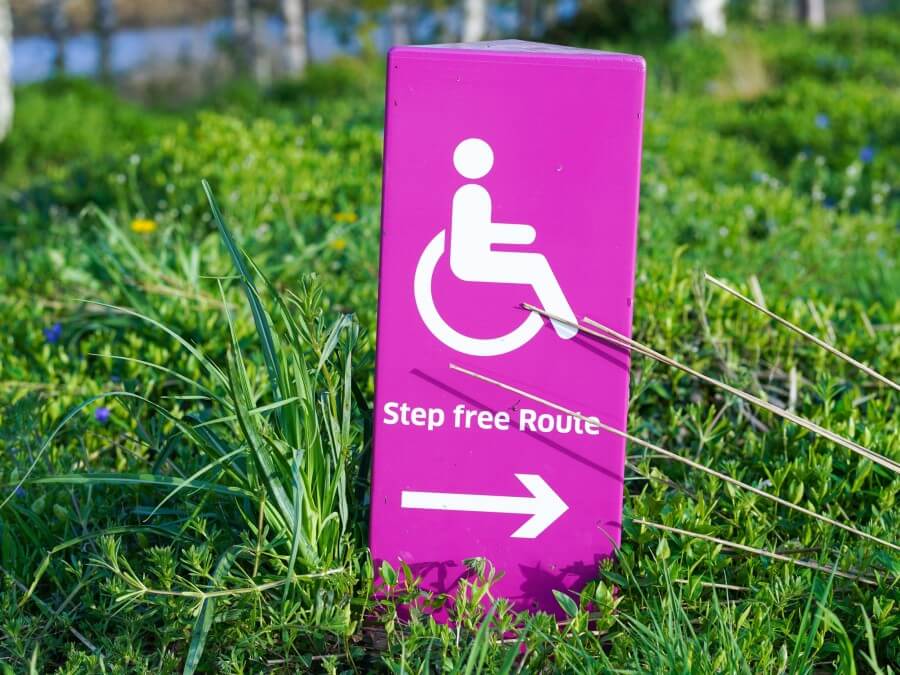
Shani Handa discusses the barriers disabled people face when looking for employment, why businesses should employ more disabled people and how they can go about it.
This blog post was produced for inclusion in the Birmingham Economic Review for 2021.
The annual Birmingham Economic Review is produced by City-REDI, University of Birmingham and the Greater Birmingham Chambers of Commerce. It is an in-depth exploration of the economy of England’s second city and a high-quality resource for informing research, policy and investment decisions.
This post is featured in Chapter 3 of the Birmingham Economic Review for 2021, on the city’s labour market and current and future challenges
Click here to read the Review.
Disability
For many of us, having a job is something that is fulfilling personally, economically, socially, and professionally. Work is a necessary part of life and a calling in many respects. Day to day, it is easy to overestimate one aspect of work such as getting paid, and underestimate another, such as building valuable relationships.
In addition to the significant impact on employment due to Covid-19, there are many groups of people who were already shut out of the jobs market. This is largely due to societal bias towards their characteristics such as age, race, disability and sexuality – to name a few.
An article by People Management showed 25% of UK employers are less likely to employ someone with a disability, and 60% were concerned about whether a disabled person could do the job. These statistics didn’t come as a surprise to me as I have first-hand experience of how difficult it can be to gain employment when you experience disability. I had to learn this harsh life lesson at the age of 16 when I had applied for over 100 jobs, but I was only successful in getting an interview when I removed any mention of my condition from job applications.
Unfortunately, my story is not uncommon. Disabled people have the lowest employment rates than the rest of the UK population, regardless of their qualification level. Yet the biggest barrier disabled people face in gaining employment are the negative attitudes and discrimination they can face throughout the recruitment process.
As 20% of the working population are disabled, and 8 out of 10 disabled people acquired their disability during their working life, the chances are that disability is an issue that you will come across in your business or experience yourself.
Most businesses will agree that building a pipeline of sustainable talent is vital, however increasingly it’s harder than ever to find people with the right skills to boost growth. But businesses are missing out on a huge skills pool – seven million disabled people of working age, almost half of whom are unemployed.
The unemployment of disabled people is a societal issue
It goes without saying that disabled people should have the same job opportunities as everyone else, but it’s simply not the case because, on average, disabled people:
- Are more than twice as likely to be unemployed than non-disabled people
- Apply for 60% more jobs than non-disabled people
- When applying for jobs only half of applications result in an interview, compared with 69% for non-disabled applicants
The disability employment gap has been stuck at over 30% for more than a decade. And yet even a 10-percentage point rise in disabled people’s employment rate would contribute an additional £12 billion to the Treasury by 2030.
We know that disabled people face unavoidable extra costs of £583 per month, as a result of living with an impairment or condition. These additional costs mean disabled people have less money in their pocket than non-disabled people, or simply go without.
Due to the pandemic, disabled people and carers are at least twice as likely to face redundancy as the rest of the working population. Nearly half the UK’s 14 million people in poverty are disabled or live with someone who is.
There couldn’t be a clearer case of why businesses must make every effort to create employment opportunities for disabled people. Yet, due to many myths, negative attitudes, and bias – the group of people that make up the world’s largest minority are facing further inequality, and the dial on disability inclusion is not moving quick enough.
Debunking the myths
Ample research has been carried out around disability and employment over the years, which conclude disabled employees are:
- Reliable– We take fewer days off, take less sick leave and stay in jobs longer than other workers
- Productive– Once in the right position with the correct support, we perform as well (or better) as other employees
- Affordable– Recruitment costs are lower due to less turnover. The majority of reasonable adjustments are low cost or cost nothing at all (e.g., flexible working)
- Safe– We are no more likely to be injured at work than other employees
- Good for business– Reflecting the customers we serve; people buy from ethical and purposeful companies, and people prefer to work for inclusive organisations.
Here are some top tips to help you get started today:
- Think differently – Understand the reality of living with a disability and change the mindset of your business, from seeing the medical side of disability, to thinking about the barriers in the way of people with impairments.
- Talk openly – Changing culture starts with encouraging and supporting your employees to be open when it comes to discussing disability.
- Lead confidently – Clear leadership and accountability for disability are important to maintain focus. Making sure people get the support they need to apply for jobs and work with you is critically important.
- Measure up – Transforming your approach to disability doesn’t happen overnight. Find ways to build trust, create a dialogue, track your progress – it’ll help keep you focused, encourage momentum, and allow you to celebrate key milestones.
The value of disabled people in the workplace is far more than ticking a box. Every decision we make can raise or lower barriers to participation in society. It’s our collective responsibility to remove these barriers, so those furthest from the jobs market are being provided with the necessary opportunities to get in and stay in work.
Further reading and resources
Here are several key organisations and networks that will help you get going and support you on your disability inclusion journey:
#WorkWithMe – A network of businesses that support each other in becoming more inclusive for disabled people. It’s free to join and to access the library of resources.
Evenbreak – Connecting talented disabled people and job-seekers with disability-friendly and inclusive employers.
Scope – Offer several employment support services.
Leonard Cheshire – Internships and awards for disabled entrepreneurs.
The Valuable 500 – A business to business initiative to commit to putting disability inclusion on their leadership agendas.
Disability Confident Scheme – Helps employers make the most of the opportunities provided by employing disabled people, and disabled job-seekers can find disability confident employers.
Access to Work – A discretionary grant scheme that provides personalised support to disabled people to take up or remain in work.
This blog was written by Shani Handa, a multi-award-winning social entrepreneur, disability specialist, and broadcaster.
Disclaimer:
The views expressed in this analysis post are those of the authors and not necessarily those of City-REDI, WMREDI, or the University of Birmingham.


